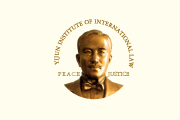CWR > Volume 8(1); 2022 > Article
Research Article
Published online: March 1, 2022
DOI: http://dx.doi.org/10.14330/cwr.2022.8.1.06
The Choice between Might and Right: Rule of Law in International Relations
Wenjun Yan
China Foreign Affairs University
No. 24 Zhanlanguan Road, Xicheng District, Beijing, 100037, PRC.
Corresponding Author: yanwenjun@cfau.edu.cn
ⓒ Copyright YIJUN Institute of International Law. This is an Open Access article distributed under the terms of the Creative Commons Attribution Non-Commercial License (http://creativecommons.org/licenses/by-nc/3.0/) which permits unrestricted non-commercial use, distribution, and reproduction in any medium, provided the original work is properly cited.
Abstract
The interaction between might and right is an important topic throughout the development of international relations. Various ideologies and corresponding practices have been put forward by realism, liberalism, constructivism, and international socialism under both Western international relations theories and China’s traditional Wang Dao (王道, “the kingly way” or “benevolent government”), and Ba Dao (霸道, “the hegemonic way” or “rule by force”). In international relations, the rule of law - a phenomenon that has emerged and is continuously developing - is conducive to restraining power politics and promoting right, which is one of the goals of international relations development. China has always opposed hegemony and power politics; it firmly supports a modern system of international law based on the purposes and principles of the UN Charter and aims to build a new international political and economic order with peace, justice, and stability.
Keywords : Might and Right, Rule of Law, Theory of International Relations, Wang Dao, Ba Dao, Hegemony





